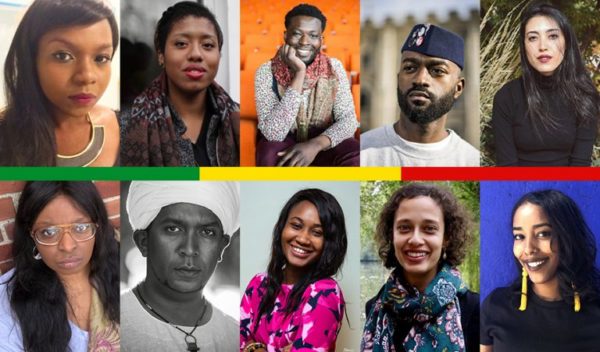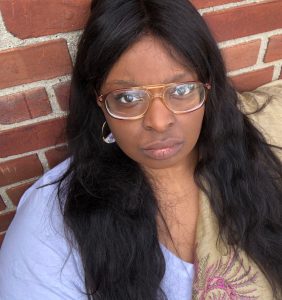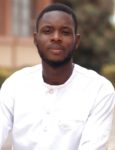
In 2018, Brittle Paper introduced a Brunel Prize Poems Review series, starting with poems on that year’s shortlist. The series returns for the 2019 Prize.
The 2019 Brunel International African Poetry Prize shortlist came with ten poets, most of whose works are truly worthy of the career-making prize. Through varying styles and themes, all the poems have one thing in common: a determination to speak the truths of their realities, which is what good poetry should do. These poems are strong. However, whether they represent the high quality of contemporary poetry by Africans is another question entirely. In fact, a strong argument could be made about subsequent shortlists failing to match that of the 2017 Prize.
Looking at the finalists, one would be forgiven for assuming that the 2019 prize was open only to Africans in the diaspora. It also makes us wonder if there is even such an essentialist idea as “African poetry,” as almost all the poems could have been written in an African-American context. But this is not the time to dwell on that. That is a question to be asked—and, hopefully, answered—on a different day.

OMOTARA JAMES
Omotara James is the author of the chapbook Daughter Tongue, selected by African Poetry Book Fund, in collaboration with Akashic Books, for the 2018 New Generation African Poets Box Set. Born in Britain, she is the daughter of Nigerian and Trinidadian immigrants. Her poetry has appeared in Academy of American Poets, Literary Hub, Platypus Press, The Lambda Literary Spotlight, Poetry Society of America, Nat.Brut, Winter Tangerine, and elsewhere. A former social worker in the field of Harm Reduction, she has been awarded fellowships from Lambda Literary and Cave Canem Foundation.
“Self-Portrait as a Queer Bloc Party” | “Haircut” | “Mirror Talk”
A capacity to turn words into moving pictures—that has always been James’ greatest strength. She uses it to her greatest advantage in these poems. In “Self-Portrait as a Queer Bloc Party,” she does something reckless with language, that unnamed thing that pulls language until it cannot hold still, until it cannot but become a vehicle conveying the reader to a new reality.
“Mirror Talk” is a curious work that seems to hide a secret in the open. Colloquially, it reads like an ode to another person. But is it, really? Featuring two women whose relationship seems fueled by toxicity, it discusses how the body adjusts to trauma in unhealthy ways.
“…her knowing hands
firmly turned your flesh
into an orchard
every way one can lie…”
Though ostensibly written to another woman about her experiences with a friend/lover/acquaintance, underlying the poem is an invitation to dare, to read it as anything but a tribute to a foreign body, to invade the persona’s space through good-natured speculation. And that is where a cogent truth appears: it might not be about another woman at all. It’s called “Mirror Talk” after all.
“Haircut” is written in a flow reminiscent of Warsan Shire. James is direct this time, employing simple language and calmness that makes light of the situation. The problem, though, is that the diction is watered down to the point of being tediously pedestrian. Details with varying levels of symbolism are sprinkled, making the overall appreciation of the work difficult. More so, the poem changes course too often for one to be invested for long. It appears intentional, the switching between points of emphasis in the narrative, but it is a choice that ultimately does the work no good.
James’ poetry shines best when she is a bit more vivacious. In those instances, her visual metaphors lights up the page:
“Speakers blast the humid sky like firecrackers in June. You take the
first hand, then hip, with you through the dance, glide, until you find
the body you abandoned // measurements ago // You travel it with
your partner. Their unshaved armpits, bleached seaweed green.”

K. ELTINAÉ
K. Eltinaé is a Sudanese poet of Nubian descent, whose poems have appeared in The African American Review, World Literature Today, Xavier Review, Muftah, Jaffat El Aqlam, Sukoon, Solidago, Rigorous, New Contrast, Poetry Potion, TRACK//FOUR, Word Fountain, The WAiF Project, Baphash Literary & Arts Quarterly, and Scintilla, among others. He currently resides in Andalusia, Spain. His favorite smells are sandalwood, amber, and Japanese yuzu. He also loves cheesecake, the oud, the kora, handmade foutas, old school rap, Sufi literature, Greek mythology, and Sarah Vaughan.
Eltinaé’s trio of entries works as a treatise on the significance of home or the lack thereof. Interestingly, the other prominent motif in the poems is displacement, or more accurately, nomadism—a distressing, involuntary nomadism. Titled after a Sudanese taxi service, the first poem “Tirhal” is an eerie take on the passage through life. Embracing predestination and disembodied existence, it makes the argument that our destinies are fully conceived before our births and we spend our lives journeying towards them.
“Kismet” talks about a possible stranger who becomes a vehicle for the poet’s pondering about his father. Though the language is emotive with its nostalgia, the actual import of the poem appears lost on the reader, with the details kept vague and open to varying interpretations—all of which would be inadequate without a knowledge of the circumstances surrounding its conception. It is best appreciated on the surface without excruciating effort, as no doors are left open for the readers to come into the poem on their own accord.
“Exhile” is a journal read out loud, an unedited revelation of pain in its most intimate form. But here is the thing about unedited revelations: they do not always make for scintillating poetry. They could be impassioned but could also be such dreary affairs. This threatens to be the case at the beginning of “Exhile,” but the indulgence in the mundane details begins to pay off towards the middle. While many immigrant poems treat home with a sickening, pretentious nostalgia, home here is a hell to flee, a memory one hopes to forget. That does not mean the presently inhabited space is dreamland, either. It is its own kind of nightmare. And that is the true definition of horror—for every semblance of home to reject you, to be a place you are trying to escape from:
“Measuring everyday how long it takes
to step out of the shower, tie laces, practice faces,
until I drop dead.
Sent back to a place I fled
but never escaped.”
ABOUT THE REVIEWER
 Kanyinsola Olorunnisola is a poet, essayist, and writer of fiction. He writes from Ibadan, Nigeria. His debut poetry chapbook, In My Country, We Are All Crossdressers, was released by Praxis Magazine. He is the founder of the literary movement, SPRINNG: Society for the Promotion, Revitalization, and Improvement of the New Nigerian Generation. He loves experimental literature, pop culture, and Nigerian jollof rice.
Kanyinsola Olorunnisola is a poet, essayist, and writer of fiction. He writes from Ibadan, Nigeria. His debut poetry chapbook, In My Country, We Are All Crossdressers, was released by Praxis Magazine. He is the founder of the literary movement, SPRINNG: Society for the Promotion, Revitalization, and Improvement of the New Nigerian Generation. He loves experimental literature, pop culture, and Nigerian jollof rice.








COMMENTS -
Reader Interactions